












One of our greatest challenges is to have New Zealanders lucky enough NOT to have arthritis understand how painful life can be for arthritis sufferers.

We have come up with a series of everyday challenges that everyone can identify with.







They can see for themselves how even the most basic tasks can be pretty darn tricky if you suffer muscle weakness (a common symptom of arthritis).



This challenge was posted online and encouraged people to give it a go, film their effort and then share it on their social media channels.
It was a great start in developing empathy among nonafflicted Kiwis, and as with any digital advertising tactic, we have learnt a lot and are keen to get onto setting our next challenge. So watch this space!






Over 700,000 New Zealanders have arthritis. By 2040, this is expected to be more than a million.
Arthritis is one of the leading forms of disability in this country.
Half the people with arthritis are of working age.
Rheumatoid arthritis 100,000 people
The three most common forms are Osteoarthritis 408,000 people Gout arthritis 208,000 people
45,000 people have more than one form of arthritis. 30,000 have less common forms such as ankylosing spondylitis, lupus, polymyalgia rheumatica to name a few.
Arthritis affects all ages including children and teenagers. The economic cost of arthritis is over
Although the second most common form of arthritis, gout is not widely perceived to be arthritis, Māori and Pacific are 2-3 times more likely to develop gout arthritis and be living with it at a younger age. This is due to genetic factors.
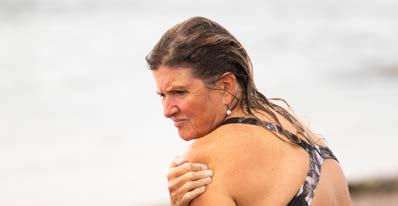
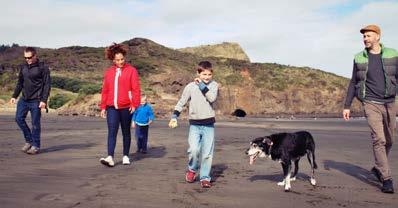
 *Figures based on the MOH NZ Health Survey and HQSC Gout
*Figures based on the MOH NZ Health Survey and HQSC Gout
Our organisational mission is to improve the quality of life for everyone affected by arthritis.
Our strategic plan has the following seven initiatives as we work towards this mission.
• Arthritis NZ is the “go-to organisation” for obtaining accurate and appropriate information, advice and advocacy for all people affected by arthritis
Success is demonstrating increasing public awareness of Arthritis NZ.
• Having a proactive and translational research programme which includes clinical, social and economic research
Success is demonstrating reputable and reliable research about arthritis and its impact.
• Generating sustainable income streams
• Working with partners to develop, deliver and measure the effectiveness of programmes and services
Success is demonstrating the value created by Arthritis NZ and our partners.
• We will be a catalyst of change in the development of programmes with a focus on equity, specifically Māori communities which will then link across to our Pacific Island communities.
Success is demonstrating implementation of the principles of Te Tiriti o Waitangi.
Success is demonstrating sustainable income streams are in place.
• We will attract and support talented people (staff and volunteers) who are passionate about the cause

Success is demonstrating that we are attracting and growing great people in all roles.
• We will optimise the organisations systems and processes
Success is demonstrating that efficient and effective systems are in place.
In the past year, three significant issues have guided the shape and direction of how we operate and how we deliver services.
One of the focus areas of the health reforms is the issue of health equity for Māori and Pacific peoples. This is especially significant for us in relation to the management and treatment of arthritis for Māori and Pacific, particularly gout arthritis.
Our journey has begun and page 4 outlines our strategies for moving forward.

The pandemic continued to influence the way we develop services and operate. Lockdowns continued, particularly in Auckland, and we accepted that for many people face-to-face activities were not their preferred way of interacting with us. The expansion of our online engagements increased our reach to people with arthritis all around the country.
One clear casualty was our two camps for teenagers with arthritis and our family camp for parents and children with arthritis. Neither of these were held in the past year, but indicators are that we will be back in business in 2023. We did, however, establish a Youth Advisory Group that met online over the year and is having active input in camp planning and development of other activities for young people with arthritis.
During the year, we looked at our model of service delivery that had been impacted by both external factors such as COVID-19 and our review of clients’ needs. This led to the development of Arthritis Assist, our new model of service delivery - more information is on page 10.
In the past year, Arthritis New Zealand has had a focus on growing our understanding of Te Tiriti o Waitangi and what health equity means, not only in theory but also in how we deliver our actual practice and services.
We have identified the need to address health inequities, the importance of growing our values base and reflecting inclusion in all aspects of our work. This will include:
• developing relationships with a wider range of stakeholders, including workplaces, marae, teens and children with arthritis, fale, diverse health providers, kaumātua and kuia, local and national decision makers and our consumers especially those who are still hesitant about this journey we have begun
• ensuring we are accessible to all stakeholders and their whānau while utilising personal and professional networks to share knowledge
• celebrating successes and growing our commitment to changing and adapting.
One important focus for us will be gout arthritis as it disproportionately affects Māori and Pacific peoples. It is a condition characterised by significant myths, often pain-management focused instead of preventative management and is minimised as a serious health condition.
The very fact that gout arthritis is the second most common form of arthritis in this country is not well known or reflected in health services. For a summary of an outstanding example of community gout education, see our story on Porirua on page 14.
Our journey in the past year has led to us establishing the foundations of Te Kawa O Mateponapona - our principles and values, which are best shown by these key themes:

Iwi: Ngapuhi, Whakatohea me Te Arawa
Dale’s personal goal is to achieve “Whanau Oranga – Health and Wellbeing”, to lead by example and empower those around her to make informed choices for the betterment of all people. Dale has worked across Te Whanau o Waipareira as Director of Education, and Manager Personal, Public and Mental Health; ProCare Health as Māori & Community Health Manager; Waitemata & Auckland DHBs as Project Manager Māori Health Gain.

Dale is passionate about health equity being a priority for Arthritis New Zealand and Māori and Pacific being clearly visible and active at all levels of the organisation.
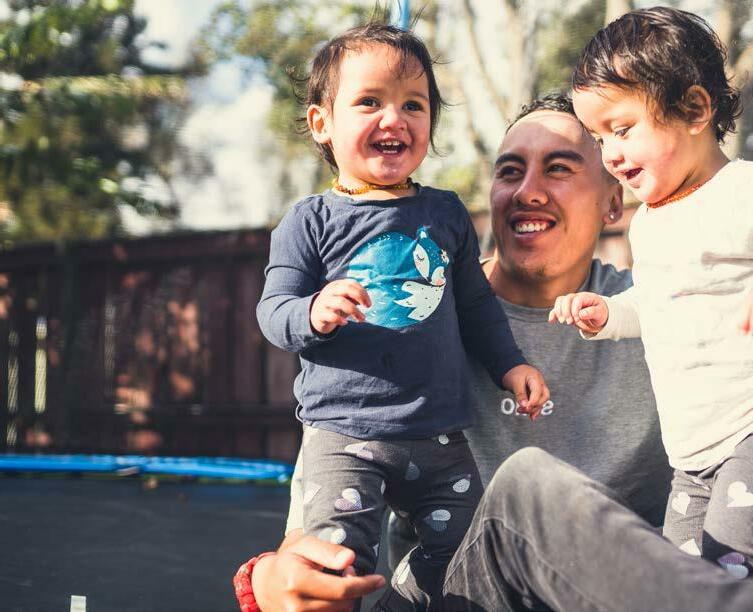
Leading our Te Kawa journey is our Health Advice Manager



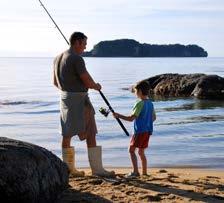

Over the past year as we have evolved programmes and services, we reviewed our client support and information service. The outcome of this review was the development of Arthritis Assist – the one-stop-shop for all client queries. One important feature of services carried over from our previous model was that we do not diagnose or prescribe. Our role is to provide information and actively promote wellbeing to those who have been diagnosed - with the important caveat that part of our role can be to help and guide people to obtain a diagnosis.
Arthritis Assist began in March 2022 with all phone call, website and Facebook queries being referred to a central information hub staffed by the Health Advice and Awareness and Advocacy teams. The first two months were spent gaining an understanding of client queries and concerns and looking at what resources and information we had or needed to develop.
What became clear was that numbers of clients were having difficulty navigating the health system - an increasing number were struggling to access a GP, and others were experiencing long and frustrating waits for services in the wake of COVID-19 generated pressures placed on health services.
Others had problems understanding their health professional or needed a listening ear, particularly when they were advised to lose weight or start exercising, without accompanying support and assistance.
The role of Arthritis Assist became very clear: to provide easily understandable information that could be accessed either online or be printed and posted out. Other components of Arthritis Assist that have been developed are:
• referral to Peer Support, which provides an opportunity to talk with another person of a similar age with a similar condition
• referral to one of our online or face-to-face support groups to discuss concerns and solutions with others
• providing an opportunity to ask questions and most of all to be able to have time to talk to someone and express frustrations.
I have received the information pack and am really happy that you sent it. Since receiving that and having a chat with you I haven’t had a panic attack since. I am so grateful for the help and ongoing support. Arthritis Assist works!!
WOW what a package! Delivered today and it is full of information.
Thank you once again for thinking of me. I will be doing lots of reading and more moving thanks to you. Best wishes to you all
Our fact sheets cover a range of topics from condition-specific information and nutrition and exercise information to tip sheets on communicating with your health team, getting the most out of your appointments, tips for winter and complementary therapies to name but a few. These are regularly revised and updated and posted on our website.
One initiative that had grown from Arthritis Assist is the development of a monthly Zoom café where people can discuss topics and information posted each month. These provide a useful forum for feedback, suggestions for future fact sheets and topics and an opportunity to talk with the Arthritis Assist Team.
In May, an initial survey of clients using Arthritis Assist was run to gain initial client feedback to facilitate our planning. This initial survey was compiled by our Research Manager and sent out to 150 clients.
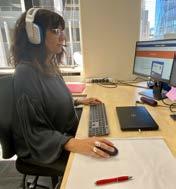
In June, the first full-time Arthritis Assist Co-ordinator was appointed –a qualified occupational therapist who has looked at resources and information and continues to develop them guided by client needs and feedback.
Initial survey results showed that 75 percent of respondents were either “satisfied” or “very satisfied” with the service received.
Most respondents heard of our service via our website, an internet search or social media, with a small number identifying word of mouth or health professionals as their source of information about our services.
This initial survey will be followed up, with all clients receiving a simple short survey, to continually provide feedback to help us in our planning.
Thank you so much. I'm thankful for the time you spent on the phone yesterday face-sunglasses flower! Yes, I would appreciate being sent the pack to my postal address. Thanks for that.
I don't use Facebook but am glad to have the other sites you have included. I've already googled some sites but feel the pack that comes in the post may add benefit to that. I donate to various charities once a year with $10.00 donations. I'll add you to my list.

Volunteers are an integral part of Arthritis New Zealand, and as we have adapted to a changing community, we have adapted our volunteer activities accordingly. Our volunteer activities include our wonderful peer supporters who are part of Arthritis Assist, our support groups that are both online and in some areas face to face, the volunteers who support our camps and family activities and our board and committee members who are all volunteers freely sharing their expertise and skills.
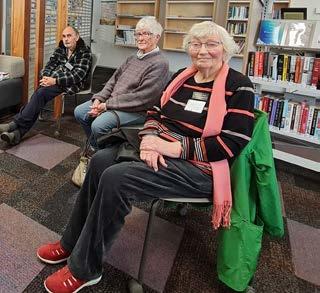
It was such a relief to find others who know what I am dealing with - I love logging on at night to see what you are all up to and how you manage the burden of arthritis.
Had a rotten day at work. People just do not understand what it is like having arthritis and trying to keep working. You guys keep me sane at times.
 Lower
Lower
One group of volunteers that has emerged are those who share their stories about living with arthritis- both in written form and also on video. We know that our supporters very much appreciate hearing about others and learning how they manage their conditions and what they have learned on their journey with arthritis.
A new group that has developed in the past year is the formation of a Youth Advisory Group - a group of teens who have arthritis and work on increasing awareness that arthritis is a condition that affects all ages, not just older people.
This group is convened by Jasmine and Tom, who both attended the teens camp run in 2021 before COVID restrictions meant that the 2022 camp was cancelled. Both these inspiring teens are passionate about improving public awareness and knowledge about arthritis and its impact on teens and children.

An ongoing project has been Project Knitwell - combining the knitting skills of a volunteer network who have arthritis, with buyers who love the opportunity to acquire quality knitting in the cold months when arthritis can be more noticeable.


The bedsocks you sent me are perfect. The first night I wore them I slept all night. That may not sound much, but for me it was major - thank you so much.
What a fantastic parcel to receive this morning - so warm and comfortable. Thank you to all the wonderful knitters who help us out.
Jasmine and TomPorirua is a proud community with diversity and history. It is a city in the Wellington region and has approximately 62,000 residents with Māori and Pacific making up nearly half the population. The resilient community has many different cultures with rich cultural values and beliefs.
Porirua has pockets of extreme deprivation with the prevalence of diabetes, obesity, cardiovascular disease, gout arthritis, poor nutrition and poor child health a reality for many. The challenges and barriers to health care are worsened through the high cost of living, long waiting times to see doctors and difficulties with transport. These are compounded by language difficulties, cultural differences and cultural expectations. We know that Māori and Pacific peoples have a higher rate of gout than other populations, making Porirua a logical focus for our gout and arthritis education in Wellington.
Arthritis NZ has been able to build and strengthen intersectoral collaboration to maximise shared outcomes. Health and social outcomes can be improved by building partnerships with community groups, providers and agencies. These include Maraeroa Marae Health Clinic, Ai io ola (TAMA, Pasifika & Maori men’s health programme), Cannons Creek and Waitangirua pharmacies, Porirua Union Health and Taeaomanino Trust.
The strength of the Porirua community is their insight into their community with solutions to the health disparities and the difficulties faced by individuals and families. Within Porirua, the suburbs of Cannons Creek and Waitangirua have the largest number of patients referred for allopurinol - the main medication used to prevent gout.
The programme facilitates linking those living with gout to the local pharmacists who provide education and information about gout and its management. Our partners can ascertain and understand issues of critical importance in a range of contexts. These partnerships have increased the support available to vulnerable gout consumers and their whānau and families.
“If you compare the allopurinol dispensed now compared to the last six months of 2017, it has grown by 80 percent for Pacific people and a little less for others. This compares to an increase in about 25 percent for all medications for the area.
You must be doing something right, well done!”
Russell Cooke, Senior System Development Manager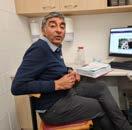
Simon Philips comments that:

“The programme has been all about local relationships that build trust and co-operation.” He identifies the importance of dispelling some of the popular myths about gout arthritis, helping people navigate the health system and understanding how gout can be treated and managed.

“We really appreciated the presentation about gout as it is a big issue for our people and the availability of ongoing education is most appreciated.”
He has a deep commitment to that community and sees the programme as part of a wider prioritisation of health equity for Māori and Pacific peoples.
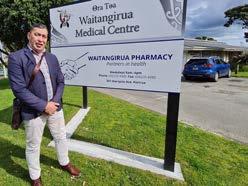
His role includes presenting to and engaging with community groups to help them understand gout arthritis and its management and how the programme can help them. Groups he works with note he presents with humour and understanding and encourages people to participate and share their experiences and concerns. As a local, Zechariah understands the barriers people face and the power of their stories in the work towards health equity.
“Listening to the person in front of you and providing information relevant to that person is the key,” he comments. “We need to build awareness that gout is a long-term condition that will require ongoing medication. We also need to explain the causes of gout and its links with other health conditions”
“It is a journey, and the role of a pharmacist is to guide people on this journey, find out where they are at in their understanding of gout and the importance of diet and exercise in addition to medication.”
is important that people understand that gout is treatable, and you do not have to just put up with it,” he explains. “It is particularly important to remove the shame and stigma attached to gout.”
Another key element for Kas is providing information about reliever medication for people experiencing pain, longer-term preventer medication and the importance of uric acid levels.
Like Graeme, Simon and Zechariah he identifies the crucial importance of local relationships and working with the community in Porirua.
Zechariah Reuelu is Pacific Development Co-ordinator for Arthritis NZ and is the local face of Arthritis NZ in Porirua.
“ItMaraeroa Marae Health Clinic
Kas Govind pharmacist at Cannons Creek identifies the need for ongoing education and awareness about gout arthritis as he finds understanding how to manage it is minimal.
Graeme Blanchard from Waitangirua Pharmacy is passionate about improving gout arthritis management.
In 2023, a research programme will be in place to collect both quantitative and qualitative data to provide key insights into the project and its local impact. It is hoped that this project will have the potential to be reproduced in other Māori and Pacific communities facing similar social and health inequities.
• Gout is the second most common form of arthritis.
• It disproportionately affects Māori and Pacific peoples because of genetic factors.
• It is usually easily treated and managed with the right education and medication.
• There are two types of medication: blockers, which relieve pain, and preventers, which prevent ongoing joint damage and deterioration.
• Gout is not your fault.
• Gout is caused by a build-up of uric acid in the blood, so uric acid testing is an important factor in treating and managing gout.
• Food triggers gout arthritis - it doesn’t cause it.
Research is one of our seven strategic priorities. Following our appointment of Dr Richard Griffiths as full-time Research Manager in April 2021, our research programme has continued to significantly develop over the 2021-22 year.
Our research-based initiatives and activities have included:
• The return of our annual External Research Grants round with a new two-stage process comprised of a preliminary “Expression of Interest” (EOI) stage followed by the submission of a full application by those researchers invited to progress to the second stage.
• Building a research community comprised of arthritis and arthritisadjacent researchers who we regularly engage with and also support through research funding, promoting their studies and collaborating on projects that align with our strategic plan and key objectives. This ensures our organisation has a robust evidence base to inform the development and delivery of our programmes, services and education programmes.
• Establishing an internal evaluation programme and “roadmap” to improve and better understand our performance, effectiveness, programmes and services.
• Repurposing the Irwin Isdale Memorial Fund, which commemorates the work of the late Dr Irwin Isdale in the field of rheumatology. This funding opportunity has provided financial support to rheumatology trainees in past years to help them attend rheumatology conferences and other professional meetings in New Zealand and Australia. Our repurposing work with Amanda Isdale (Irwin’s daughter) aims to provide new options in the future to support rheumatology trainees’ career development.
• Delivering a presentation to the Annual Rheumatology Registrars’ Meeting in April 2022 to provide an overview of the work we do and also invite feedback from attendees to assist with the repurposing work being done in relation to the Irwin Isdale Memorial Fund.
• Being one of five finalists in the inaugural What’s Your Impact competition sponsored by BDO and ImpactLab to award $25,000 worth of ImpactLab’s GoodMeasure services to a New Zealand charity or NGO. In February 2021, Dr Griffiths and Philip Kearney presented to an esteemed panel of judges, including former Prime Minister Sir Bill English and Eat My Lunch founder Lisa King.
• Research that aims to describe what people who have used DHB rheumatology services in the past five years consider to be important in public hospital rheumatology services to help inform future best-practice rheumatology service requirements in this country’s public health systems.

• Research that identifies evidence to support investment in nonsurgical models of care for osteoarthritis of the hip and/or knee.
• Research that provides insights into the barriers and opportunities associated with the dispersing of and adherence to gout arthritis medication in the eastern Porirua community, as well as insights into the lived experience of gout arthritis by Māori and Pacific peoples.
 Professor Rebecca Grainger and Rachel Kee
Professor Rebecca Grainger and Rachel Kee
We have commissioned and funded the following research:
In 2021, Arthritis New Zealand developed a new Lupus/SLE Postdoctoral Fellowship, which was made possible by an extremely generous bequest by the late Dorothy Ashbolt.
We opened the inaugural Arthritis New Zealand Lupus/ SLE Postdoctoral Fellowship EOI round in October 2021 and received a number of high-quality applications, with several candidates being invited to submit a full application in January 2022.
Dr Chunhuan Lao, an emerging researcher from the University of Waikato, was awarded this significant new research funding opportunity in March 2021. Starting in July 2022, Dr Lao will undertake work in the Lupus/SLE area across three years. Her key goal is to estimate the characteristics, management, outcomes and costs of Lupus in Aotearoa New Zealand, using a range of high-quality national-level datasets. Dr Lao will also describe all results for Māori, Pacific and non-Māori/non-Pacific peoples and compare any differences between ethnic groups.

Osteoarthritis Aotearoa New Zealand is a coalition of dedicated clinicians, researchers from various universities, practising health specialists and health professionals from NGOs, including Arthritis New Zealand and Physiotherapy New Zealand.
Dr Griffiths and Philip Kearney have continued to represent our organisation in this collaborative work with the end goal of developing a national model of care for the management of osteoarthritis (OA).
The group hosted the Taupuni Hao Huatau Kaikōiwi Osteoarthritis Basecamp event at the University of Auckland in July 2021. Approximately 80 attendees from primary, secondary and tertiary care services, health researchers and funding agencies met to discuss the management and treatment of OA. Delegates also participated in several comprehensive workshops with the goal of prioritising OA care delivery and research. Arthritis New Zealand also formally launched our new MyJointPain online portal at this cross-sector event.
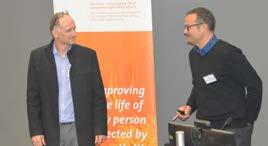

The following four scholarships were funded:
• Development of a framework to inform the creation of a mobile app to support students learning musculoskeletal (MSK) examination. Supervisors: Dr Tehmina Gladman, Lecturer and Education Adviser, University of Otago, Wellington, and Professor Rebecca Grainger, Associate Dean Medical Education, Department of Medicine, University of Otago, Wellington; and Rheumatologist, Hutt Valley DHB (student: Ollie McCullough).
• Podiatry needs and service provision for people with arthritis: a retrospective review of a rheumatology podiatry clinic in Aotearoa New Zealand. Supervisors: Dr Sarah Stewart and Dr Angela Brenton-Rule, both Senior Lecturer, School of Podiatry, Auckland University of Technology, and Dr Nicola Dalbeth, Professor and Rheumatologist, School of Medicine, University of Auckland (student: Vy Nguyen).

• Fibroblast subsets, Interleukin-6 (IL-6) and Rheumatoid Inflammation. Supervisor: Dr Paul Hessian, Senior Research Fellow, Department of Medicine, University of Otago, Dunedin (student: Dayang Nurul Izzati binti Awang Shuani).
• Association between gout arthritis status and genetic variants within immune system genes in Māori and Pasifika people. Supervisor: Dr Tanya Major, Research Fellow, Biochemistry Department, University of Otago, Dunedin (student: Daniel Gray).
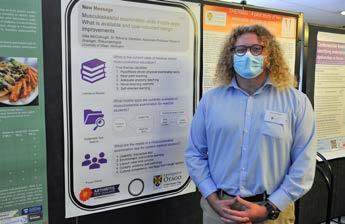 Ollie McCullough
Vy Nguyen
Ollie McCullough
Vy Nguyen
The programmes we deliver and initiatives we develop are all dependent on the funding we generate, and so the work of our funding team is core to our ability to provide services and implement our strategic plan.
Significant features of our funding in the 2021-22 year have been:

• Contracts with DHBs in Wellington, Christchurch, West Coast and with the Ministry of Health and Taranaki Apepsi. We know that the health reforms will be changing the contract landscape, and we are talking with key people in the new health structures to ensure we are included in service planning and delivery.
• Innovative community fundraising with individual donors, corporate sponsors, trusts and foundations at many fundraising events.
• Our annual appeal, which focused on building awareness of our services and featured a slot on The Project and a feature in Stuff along with regional newspapers.
• The cancellation of cheques has had some impact and we continue to work to provide safe and convenient ways for people to be able to donate. These include making bank transfers, setting up direct debits, donating via credit card and using our website donation facility.
We express our heartfelt thanks to all our supporters, without you, none of the services and activities outlined in this report could happen and the quality of life for people with arthritis would be significantly diminished.


Sharp is an important supporter of Arthritis New Zealand. For the past five years, they have been running an annual fundraising golf tournament with over $60,000 raised for the charitable trust so far. The funds raised go towards their annual Children’s Camp event, which invites children with JIA (juvenile idiopathic arthritis) and their parents to a weekend filled with activities and support.
Arthritis is too often associated with older people, but in fact it can affect all ages - as the children and teens who come to our camps know all too well.
The amount of money raised is massively helpful and is essential for bringing together kids and parents from all around the country who benefit so much from meeting and learning from each other.
Thanks to Sharp and all those who join this wonderful day in our fundraising calendar.
 Arthritis NZ team: Maurice Roberts (former staff member), Philip Kearney (Chief Executive) and National MP Michael Woodhouse
Arthritis NZ team: Maurice Roberts (former staff member), Philip Kearney (Chief Executive) and National MP Michael Woodhouse
Estate of Betty Helen Stewart
Estate of Audrey I Gibson
Estate of PLF Dennis
Estate of Henry George Sparks
Estate of Lalita Sundari Natali
Estate of Dudley Wade-French
Estate of R F Bowden
Thomas Edward Dawson
Estate of Marie Harding
Estate of Catherine Scrimgeour
Estate of Dorothy Ashbolt
Estate of Nita Caroline Ball
Estate of Marie Harding
Estate of W H Meek
Estate of Brenda Bradnam
Estate of Trevor James Ellis
Estate of James William Crook
Estate of William Thomas Oliver
Estate of Cathrine Margaret Malloch
Estate of Elizabeth Kennedy
Estate of Patricia Marion Morgan
Edith Lillian Grace Tongue Trust
Estate of Cara Noeline Grandi
Estate of Eileen Marie Claudine McIntosh
Estate of Martha Elizabeth Jones
Estate of Matilda May
Estate of Dorothy Frisken
Estate of Ian Douglas Smith
Beatrice Georgeson Trust
Pathfinder Asset Management Ltd
Nikau Foundation
Ara Lodge No 348 I.C. Charitable Trust Board
H and K Reynolds Charitable Trust
William Downie Stewart Charitable Trust
Snow Hallett Family Trust
W N Pharazyn Charitable Trust
Doris M Partridge Charitable Trust
Hilda Curtis Charitable Trust
Trinsley Charitable Trust
Pub Charity Ltd
Zelda Roberts Charitable Trust
William Downie Stewart Charitable Trust
Central Lakes Trust
Jack Jeffs Charitable Trust
NZ Lottery Grants Board
Leonora Knapp Trust
Edith Lillian Grace Tongue Trust
The Albet Trust
Maisie Hayes & Charlie Warr Memorial Trust
Taranaki Apepsi Trust







Principal sponsors and funders
After qualifying as a lawyer and working in private practice, Rebecca moved in-house and worked as a legal advisor within the financial services sector for over 20 years, primarily with the global investment bank UBS, focusing on risk and regulatory requirements as well as employment-related issues. Rebecca is an accredited mediator and is currently working for Simplicity Charitable Trust.
Appointed Trustee 24/11/2018
Ben brings financial and legal skills to the governance team of Arthritis New Zealand. Ben studied commerce and law at the University of Otago before starting a career in professional services. Initially, Ben worked in a corporate finance team at PricewaterhouseCoopers before transitioning into corporate banking roles in Australia and New Zealand. In early 2019, he joined the senior leadership team of New Zealand’s largest privately-owned hospitality group, Kāpura.

Appointed Trustee 7/3/2019
Richard is the owner and Managing Director of the Wellington-based creative digital agency, PlasticStudio. Having built up the business from 2008, he’s gained a broad range of business expertise, including strategy, problem solving, management, HR and finance.
Day to day, Richard leads and advises his clients through the complex challenges of brand communication, digital technology and customer experience. Richard has an honours degree from the Whanganui School of Design.



Appointed Trustee 29/11/2019
Peg volunteered to be on the Board because she wanted to make a difference for the consumer. Diagnosed with rheumatoid arthritis in her early 30s Peg has learnt that the initial decisions and care received from the medical fraternity are crucial to future management and overall wellness. An exathlete, physical and health education professional and now director of her own company, Peg’s knowledge of health and wellness has held her in good stead regarding her decision making around managing her rheumatoid arthritis.
Appointed Trustee 29/11/2019
Jacob was diagnosed with ankylosing spondylitis at the age of 11 and has been involved with Arthritis New Zealand ever since. He attended his first kids camp that same year, and two years later came back as a leader and has been doing so ever since. In 2020, he attended his ninth camp as a leader. Jacob has a law degree from Auckland University of Technology and works as a private investigator. He is also sitting his professional legal studies for admission to the High Court.




Appointed Trustee 5/3/2020
Peter is a rheumatologist and is the nominee of the NZ Rheumatology Association. Peter moved to New Zealand in 1995 as a consultant rheumatologist at Queen Elizabeth Hospital in Rotorua. In 2003, he was appointed Associate Professor of Medicine at Auckland University, Waikato Clinical School. In 2012, Peter moved to Wellington to be Chief Advisor in the Ministry of Health and took on his current role in 2018.
Appointed Trustee 27/11/2020
Ben comes from a long line of philanthropic donors; he is Managing Director of the Wellington-based Sutherland Self Help Trust, established in 1941 by the Sutherland family. The experience in philanthropy has given Ben broad understanding of the New Zealand health sector and the positive health impact organisations similar to Arthritis NZ have on New Zealanders. Ben studied commerce and law at Victoria University before moving into the commercial property and philanthropy sectors. He has sat on several other boards focusing on health and education for many years, including the Wellington City Life Education Trust for over 15 years.

Appointed Trustee 26/11/2021
Sue is originally from Llandudno, North Wales, but has called Aotearoa New Zealand home since 2002. Sue has had a long interest in osteoarthritis after seeing her mum struggle with knee pain for many years before her two successful knee replacements. This spurred Sue to pursue a PhD at Queen Mary University of London on cartilage tissue engineering.
Sue is now a Senior Lecturer at the University of Auckland and runs an osteoarthritis research group. Sue is married to Rob and has two sons. You can usually find Sue baking in the kitchen, out running with her dog Max or ferrying her boys to endless soccer and rugby matches.
I am proud to be submitting my first report as Chair of the Board of Trustees of Arthritis New Zealand, Mateponapona Aotearoa and provide an update on the key developments and focus of the organisation as we emerge into this post-COVID world.
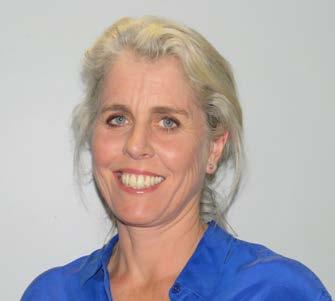
Arthritis NZ’s response to the universal online “pivot” of 2020-21 of increasing its digital service delivery under the Arthritis Assist umbrella, including introducing online learning tools MyJointPain and MyRA (currently in final stage development), has further enhanced the organisation’s role as a trusted and meaningful resource for both consumers and clinicians. The benefits of these online resources are even more tangible as access to health services throughout the motu remains extremely pressured and as we await the release of Te Whatu Ora’s interim NZ Health Plan.
We’re also pleased with the advances made in another key strategic initiative: to increase collaboration across the health NGO space, reduce duplication and more efficiently deliver health advice and support. It has been positive to see the experience gained through the trial of combined community health support with Diabetes NZ and the Heart Foundation that we’ve helped lead in Northland, and although still in its initial stages, we hope this will provide a replicable model for other regions.
As a Board it has been good to see our investment in a new CRM system already demonstrate its effectiveness, helping us to better understand and actively record the “voice of the consumer” and use that information to help inform discussions with the government and health providers more generally.
Research has been reinvigorated under manager Richard’s stewardship, and the Board is committed to see the organisation’s research programme grow and expand. One positive example has been the NZIER report Arthritis NZ commissioned to look at the financial efficacy of non-clinical interventions for the treatment of osteoarthritis, which was able to be tabled at the same time the government established a taskforce to recommend options to reduce surgical waiting times and the long-term pressure on resources.
Alongside this, the Board and staff have continued to develop and deepen our commitment to health equity through our internal Te Kawa programme and continue to focus on how best to engage with the Te Aka Whai Ora Māori Health Authority, in particular through our gout arthritis programme.
Maintaining diverse and reliable income streams remains a key focus for the Board along with associated cost constraints. We appreciate the need to continue to build on sustainable income streams in these uncertain economic times, for example, through managing our delivery contracts as we transition away from the regional DHB model.
Otherwise, we’re excited by the development of our Youth Advisory Group, who provide such an important voice and energy within the organisation, and are very pleased to see the camps back in the schedule this summer after being cancelled for the past two years.
As ever, we are extremely grateful to the generosity of donors and volunteers who give so much to Arthritis NZ and its kaupapapa. Within that, our Board continues to show up with enthusiasm and support for the organisation, applying their various skills to help drive its ongoing success.
I’d like to give particular mention to Peter Larmer, my predecessor, and all that he has done during his tenure. His have been large shoes to fill, and in addition, I’d like to acknowledge Rob Mitchell our Corporate Services Manager, who has recently left for his well-earned retirement after 18 years of high-calibre support to the Board, most recently reflected in KPMG’s excellent audit report.

This last year has been one of resetting the new normal post the COVID pandemic and trying to understand the impact of the new health reforms – particularly on our primary care systems. The advent of pilot localities, where communities come to decide their health priorities, is a welcome change but will require strong leadership along with a more collaborative approach from providers. The focus on equity is critical to ensure these key communities are fully supported and the wider wellbeing is a prime outcome.
With these impending health changes, there has been significant uncertainty among decision makers at all levels. This vacuum of decision making is understandable given the changes but can only last so long. Strong leadership is required to break down heavily entrenched health paradigms so that new thinking is embraced and innovative models of care are welcomed and supported.
Equity is a core to these reforms, and we at Arthritis NZ are fully embracing these values. We have recently introduced Te Kawa to ensure we “walk the talk” and act with strong integrity when engaging with health entities and the wider communities.

COVID has taught us a lot around new ways of providing services, and we need to ensure we build on these innovative practices and not just go back to past ways. At Arthritis NZ, we are continually looking at new initiatives that enable us to reach and support more people with arthritis.
The development of Arthritis Assist, which looks more at the wider wellbeing of those suffering from arthritis is a prime example. The provision of new resources, peer support and online groups are just some of the services we offer. Feedback has been exceptional with those engaging welcoming the allround support from this team.
We have also introduced MYJOINT PAIN, which is an online self-management program for those with OA. There has been strong uptake for this resource, and on the back of this, we are looking to introduce MYRA and others in the coming year.
We continue to engage with different groups around the country and welcome the opportunity to explore new areas and raise sensitive topics. One such topic has been the access and use of medicinal cannabis. We have published a range of balanced articles and relevant research that has been well debated and valued by those who have arthritis.
We cannot continue to do this work without the valued support of our donors and trusts. Eighty percent of our funding comes from these generous supporters, and we are continually grateful that they share our vision of improving the life of every person affected by arthritis.
I would also like to thank all those volunteers who assist us in so many ways. We could not operate without this invaluable support. I would also like to acknowledge the Board of Arthritis NZ who volunteer their time and significant expertise to make sure we remain focused and accountable to our vision. This year Peter Larmer stepped down as Chair after six years and is ably replaced by Rebecca Roberts. I have appreciated Peter’s wise counsel and support over these years and his passion for ensuring those with arthritis get the best care and support possible.
Finally, I acknowledge our great Arthritis NZ team. Without their dedication and passion, which often means going well beyond what they should do, we would not be able to provide such service given our limited resources. I truly value the efforts that each provides in their varied roles throughout the organisation.
I look forward to the uncertain and challenging year ahead, where I believe there will be significant opportunities for Arthritis NZ to play a key part in shaping the new health landscape.

This is a summary of Arthritis New Zealand (Mateponapona Aotearoa)’s (the Trust’s) audited financial statements for the year ended 30 June 2022 which were authorised for issue on 14 September 2022. The summary financial report has been extracted from the full audited financial statements for the year ended 30 June 2022.
The summary financial statements have been prepared in accordance with PBE FRS-43 - Summary Financial Statements. The full financial statements have been prepared in accordance with generally accepted accounting practice and they comply with Public Benefit Entity International Public Sector Accounting Standards (PBE Standards) and other applicable Financial Reporting Standards, as appropriate for Tier 2 not-for-profit public benefit entities. The Trust has made an explicit and unreserved statement of compliance with Public Benefit Entity International Public Sector Accounting Standards (Tier 2 PBE Standards) in note 1 of the full financial statements.
The summary financial report cannot be expected to provide as complete an understanding as provided by the full financial statements of financial performance, financial position, recognised income and expenses and cash flows of the Trust. A copy of the full financial statements can be obtained from the website www.arthritis.org.nz.
The auditor has examined the Summary Financial Statements for consistency with the audited financial statements and has the opinion that the information reported in the summary financial report complies with PBE FRS43 summary Financial Statements and is consistent in all material respects, with the full financial report from which it is derived.
The going concern basis of preparing the financial statements has been used. In preparing the financial statements on a going concern basis, the Trust has continued to apply the measurement, recognition and disclosure requirements of the PBE FRS-43 Standards.
Statement of Comprehensive Revenue and Expense for the year ended 30 June 2022
2022 $000’s 2021 $000’s
Contributions from the Community 1,543 1,096
Bequest income specified for lupus research - 3,688
Income from Services and Programmes 576 608
Depreciation Recovered 1 -
Net Finance Income 333 281 2,452 5,673
Fundraising Costs 324 210
Expenditure on Services and Programmes 1,058 1,247 Administration expenses 901 911 Governance Costs 7 10
Research grants awarded 132 121 Depreciation and Amortisation 69 71 2,491 2,570
Operating Surplus (Deficit) (38) 3,103
Net change in fair value of investments (1,289) 763
Total Comprehensive Revenue and Expense for the year (1,327) 3,866
Statement of Changes in Equity for the year ended 30 June 2022 2022 $000’s 2021 $000’s
Opening Equity Balance 12,353 8,487
Surplus (Deficit) for the year (38) 3,103
Other Comprehensive Revenue & Expense (1,289) 763
Total Comprehensive Revenue and Expense (1,327) 3,866
Closing Equity Balance 11,026 12,353
Statement of Financial Position as at 30 June 2022
Assets
2022 $000’s 2021 $000’s
Property, Plant and Equipment 369 426
Intangible Assets 161Investments 10,445 11,987
Trade and Other Receivables 104 142
Cash and cash equivalents 260 242
Total Assets 11,339 12,797
Liabilities
Employee Benefits 156 152
Trade and other payables 126 235 Revenue in Advance 31 57
Total Liabilities 313 444
Equity
Trustees Funds 825 787 Research Funds 7,093 7,069 Other Special Purpose Funds 1,458 1,559 Investment Fair Value Reserve 1,650 2,938
Total Equity 11,026 12,353
Total Equity and Liabilities 11,339 12,797
Statement of Cash Flows for the year ended 30 June 2022
2022 $000’s 2021 $000’s
Net Cash Flows from Operating Activities (395) 2,856
Net Cash Flows from Investing Activities 413 (2,950)
Net increase (decrease) in cash held 18 (94)
To the beneficiaries of Arthritis New Zealand (Mateponapona Aotearoa)
Report on the summary financial statements
To the beneficiaries of Arthritis New Zealand (Mateponapona Aotearoa)
The accompanying summary financial statements comprises:
the summary statement of financial position as at 30 June 2022;
In our opinion, the accompanying summary financial statements of Arthritis New Zealand (Mateponapona Aotearoa) (the ‘trust’) on pages 30 to 31: i. Has been correctly derived from the audited trust financial statements for the year ended on that date; and ii. Is a fair summary of the trust financial statements, in accordance with PBE FRS 43 Summary Financial Statements
In our opinion, the accompanying summary financial statements of Arthritis New Zealand (Mateponapona Aotearoa) (the ‘trust’) on pages 30 to 31:
— the summary statements of comprehensive revenue and expense, changes in equity and cash flows for the year then ended; and other explanatory information
The accompanying summary financial statements comprises:
the summary statement of financial position as at 30 June 2022;
We conducted our audit in accordance with International Standard on Auditing (New Zealand) (ISA (NZ)) 810 (Revised), Engagements to Report on Summary Financial Statements
i. Has been correctly derived from the audited trust financial statements for the year ended on that date; and
— the summary statements of comprehensive revenue and expense, changes in equity and cash flows for the year then ended; and
We are independent of the trust in accordance with Professional and Ethical Standard 1 International Code of Ethics for Assurance Practitioners (Including International Independence Standards) (New Zealand) issued by the New Zealand Auditing and Assurance Standards Board and the International Ethics Standards Board for Accountants’ International Code of Ethics for Professional Accountants (including International Independence Standards) (‘IESBA Code’), and we have fulfilled our other ethical responsibilities in accordance with these requirements and the IESBA Code.
ii. Is a fair summary of the trust financial statements, in accordance with PBE FRS 43 Summary Financial Statements.
— other explanatory information
Other than in our capacity as auditor we have no relationship with, or interests in, the trust.
of this Independent Auditor’s
We conducted our audit in accordance with International Standard on Auditing (New Zealand) (ISA (NZ)) 810 (Revised), Engagements to Report on Summary Financial Statements
This report is made solely to the beneficiaries as a body. Our audit work has been undertaken so that we might state to the beneficiaries those matters we are required to state to them in the Independent Auditor’s Report and for no other purpose. To the fullest extent permitted by law, we do not accept or assume responsibility to anyone other than the beneficiaries as a body for our audit work, this report, or any of the opinions we have formed.
We are independent of the trust in accordance with Professional and Ethical Standard 1 International Code of
We are independent of the trust in accordance with Professional and Ethical Standard 1 International Code of Ethics for Assurance Practitioners (Including International Independence Standards) (New Zealand) issued by the New Zealand Auditing and Assurance Standards Board and the International Ethics Standards Board for Accountants’ International Code of Ethics for Professional Accountants (including International Independence Standards) (‘IESBA Code’), and we have fulfilled our other ethical responsibilities in accordance with these requirements and the IESBA Code.
Other than in our capacity as auditor we have no relationship with, or interests in, the trust.

This report is made solely to the beneficiaries as a body. Our audit work has been undertaken so that we might state to the beneficiaries those matters we are required to state to them in the Independent Auditor’s Report and for no other purpose. To the fullest extent permitted by law, we do not accept or assume responsibility to anyone other than the beneficiaries as a body for our audit work, this report, or any of the opinions we have formed.
The Trustees, on behalf of the trust, are responsible for: the preparation and fair presentation of the summary financial statements in accordance with PBE FRS 43 Summary Financial Statements; and implementing necessary internal control to enable the preparation of a summary set of financial statements that is correctly derived from the audited financial statements
implementing necessary internal control to enable the preparation of a summary set of financial statements that is correctly derived from the audited financial statements
© 2022 KPMG, a New Zealand Partnership and a member firm of the KPMG global organization of independent member firms affiliated with KPMG International Limited, a private English company limited by guarantee. All rights reserved.
Our responsibility is to express an opinion on whether the summary financial statements are consistent, in all material respects, with (or are a fair summary of) the audited financial statements based on our procedures, which were conducted in accordance with International Standard on Auditing (New Zealand) (ISA (NZ)) 810 (Revised), Engagements to Report on Summary Financial Statements
Our responsibility is to express an opinion on whether the summary financial statements are consistent, in all material respects, with (or are a fair summary of) the audited financial statements based on our procedures, which were conducted in accordance with International Standard on Auditing (New Zealand) (ISA (NZ)) 810 (Revised), Engagements to
We expressed an unmodified audit opinion on the financial statements in our audit report dated 14 September 2022
We expressed an unmodified audit opinion on the financial statements in our audit report dated 14 September 2022
The summary financial statements do not contain all the disclosures required for a full set of financial statements under generally accepted accounting practice in New Zealand. Reading the summary financial statements, therefore, is not a substitute for reading the audited financial statements of the trust
The summary financial statements do not contain all the disclosures required for a full set of financial statements under generally accepted accounting practice in New Zealand. Reading the summary financial statements, therefore, is not a substitute for reading the audited financial statements of the trust
KPMG Wellington 14 September 2022
KPMG Wellington 14 September 2022








